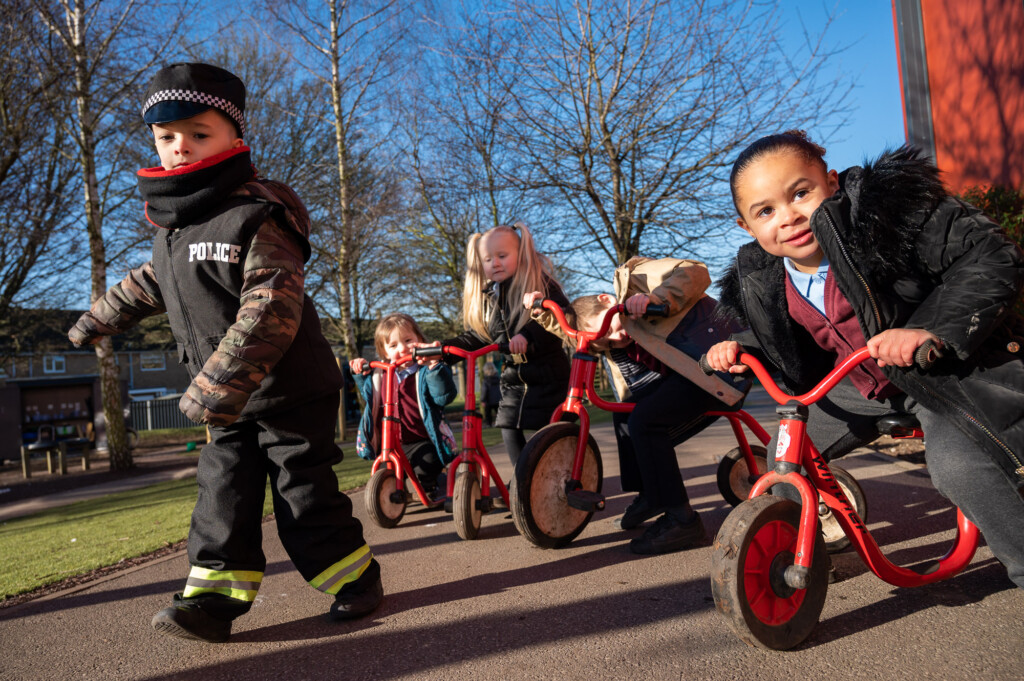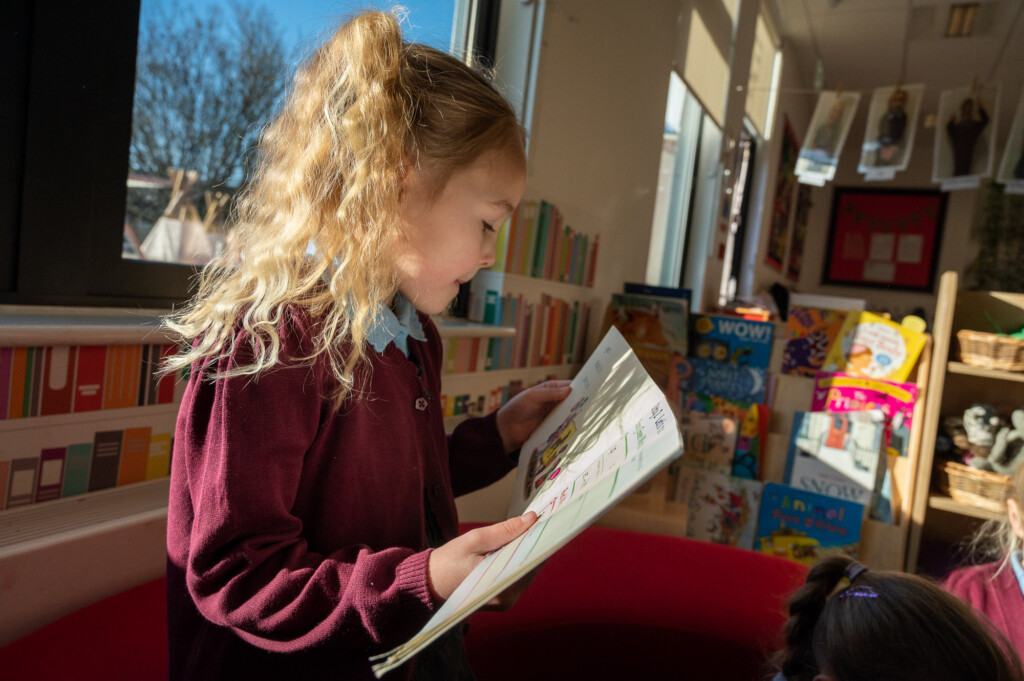Welcome to –
The Early Years Foundation Stage
Early childhood is the foundation on which children build the rest of their lives. It is not just a preparation for the next stage but is vitally important in itself.
For young children there is no distinction between work and play. Learning for young children is a rewarding and enjoyable experience in which they explore, investigate, discover, create, practice, rehearse, repeat, revise and consolidate their developing knowledge, skills, understanding and attitudes.
During the foundation stage, many of these aspects of learning are brought together effectively through playing and talking.
Aims of the Early Years Foundation Stage
In the EYFS we believe that all children are entitled to the best possible start in their school life, both intellectually and emotionally, in order to enable them to develop their full potential.
We aim to support each child’s welfare, learning and developmental needs by:

The Early Years Foundation Stage framework
Teaching in our EYFS is delivered in accordance with the government document ’The Statutory Framework for the Early Years Foundation Stage’ (March 2014).
Our curriculum is centered on 3 prime areas of learning outlined in this document:
We also support activities through four specific areas which strengthen the prime areas:

Active Learning through Play
We organise the day to provide a balance between the following:-
At Neasden Primary School we recognise that young children learn best when they are active. We understand that active learning involves other people, objects, ideas and events that engage and involve children for sustained periods. Therefore, we believe that Early Years education should be as practical as possible and our EYFS setting has an ethos of learning through play.
Parents as Partners
At Neasden Primary School we recognise the importance of establishing positive relationships with parents. We understand that an effective partnership between school and home will have a positive impact on children’s learning and development. So, practitioners endeavour to encourage the regular sharing of information about the children with parents.
We value the role of parents as children’s primary educators. We encourage parents to share their unique knowledge of their child, providing further insight into the child as an individual
(e.g. characteristics, interests, experiences, likes, dislikes). This supports practitioners in establishing interesting and stimulating learning experiences, responding to children’s needs and interests.
Parents are also invited to get involved with school life. There are opportunities for them to help with activities such as educational visits and reading, as well as offering their particular skills (e.g. cooking, art, music) to support children’s learning.
The setting has a friendly, open-doors ethos and practitioners are available to talk to parents at the beginning and end of the day. Parents are always welcomed into school and encouraged to discuss any concerns they might have.
Admissions and Induction
To view the EYFS Admissions Policy, please click here.
Before they start in the setting, all children are offered a series of come and join in sessions. The purpose of these initial visits is for the children to meet their new practitioners and start to become familiar with the setting environment.
Practitioners will also go to visit the children in homes and in their current pre-school settings. The aim of these visits is to support practitioners develop their knowledge and understanding of each child in order to make the transition period to Neasden Primary School as smooth as possible.
Parents are invited into school to meet the setting practitioners. At this meeting information regarding the induction process and what goes on in the setting is shared. There is also time for informal chat and parents’ questions. Information packs will be distributed to parents at this meeting, detailing school routines and expectations.
Every effort is made to make children feel safe, secure and happy. There is a relaxed and open ethos in the setting. Established routines, a calm atmosphere and encouraging talk are some of the strategies practitioners use to maintain children’s positive feelings about school.
